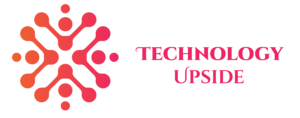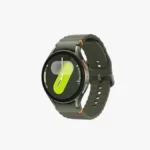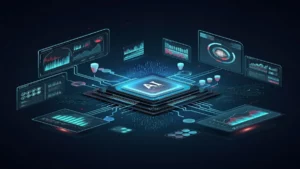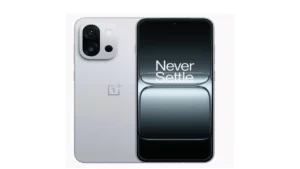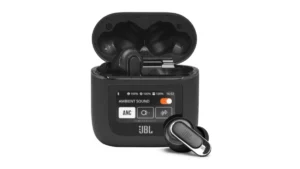Several innovative leaps have been made in healthcare technologies, since the time people practised medicine, yet few of the healthcare technology leaps had a lasting impact and influence on digital technology. Dramatic improvements in networking and computers have expanded options for medical treatments as well as have transformed how clinicians perform their jobs. Such is the impact that technology is continuing to have in the world of healthcare technologies.
With improving technology in medicine and a decrease in costs, the policies and data standards were created to encourage healthcare organizations to adopt new technology and not only for medical equipment, it includes diagnostic imaging machines, and is also used for everyday record keeping. Technology in health care has advanced so much that today paper medical records are digitized and are replaced mostly with electronic health records (EHRs), this makes it easier for health data like test results or diagnoses to be accessed securely and efficiently.
Isn’t this amazing to see how far we have come in the development of healthcare technologies? Well, it certainly is. We have come a long way and there are many more innovations to make in the field of healthcare technologies that would pave the way for a better healthcare environment in the healthcare industry.
Challenges in Healthcare Technologies:
However efficient today’s technology may seem, there continues to be a large challenge that exists because of technology in the healthcare industry. This challenge has been created by EHRs in the world of healthcare technologies which is the accumulation of large amounts of unintegrated and unstandardized data. Today, most medical organizations have a wealth of data that they can use to improve their procedures and business practices, but they might not have the tools or expertise that are required to cover insights in that data.
New technologies such as blockchain, cloud, and AI tools based on machine learning can yield fruitful results in the world of healthcare technologies. They can help healthcare organizations to uncover patterns in large amounts of data while also making that data more secure and easier to manage.
As the healthcare industry continues to face more challenges because of technology and healthcare going side-by-side, technological solutions are helping leaders to improve performance, increase collaboration across systems, and manage costs. As the demand for healthcare technologies in healthcare organizations increase, healthcare technology can streamline processes, automate tasks, and improve workflow at a scale that is not possible for humans alone. However, the providers at hospitals and healthcare systems are embracing value-based health reimbursement models and these solutions are helping healthcare professionals to improve patient care, create better experiences and also reduce burnout.
Benefits of Healthcare Technologies:
As there are challenges because of the technology in healthcare, there are also many benefits that the healthcare technologies have in the healthcare sector. I know folks, you must be wondering what they are. Well, without any further delay let’s get to know some of the benefits that healthcare technologies have in the form of medical technology.
-
Real-Time Information Exchange:
From clinicians to patients to payers, many different groups need access to health records because of different reasons. Traditionally, healthcare organizations had to maintain different records for each group, but with the advancement of healthcare technologies, it has become easier for digital patient records to be standardized and stored securely.
-
Flexibility for Clinicians and Patients:
Today people are busy and finding time for appointments can be a struggle, but today, you can least expect to go through this struggle all thanks to the telemedicine technology and patient portals that provide more ways for people to communicate with health professionals. With healthcare technologies being built-in wearables such as heart monitors also give clinicians more ways to evaluate the well-being of their patients and should provide them with more options to record and evaluate symptoms as patients go about their lives.
-
To Improve Patient Care and Experiences:
Using healthcare technologies to measure and capture data across the whole system of patient care helps to give healthcare organizations a big-picture view of how they are performing. Technology has helped to automate the measurements for healthcare organizations to continuously review their results, spot issues that are to be fixed, and enhance care and the patient experience.
I am pretty sure that these benefits of healthcare technologies have fascinated you. Now, let’s get to know how the newer technology that is blooming in healthcare has impacted the healthcare industry.
Impact of Newer Technologies in the Healthcare Industry:
-
AI Technology in Healthcare Industry:
Many efforts that are made today are focused on incorporating artificial intelligence in healthcare to have clinical decision support and uncover useful insights from large collections of data. Healthcare organizations have accumulated immense amounts of data, Hence it would be impossible to analyze without AI. AI-enabled tools can sift through the large and complex data sets that are generated from electronic records, images, notes, sensors, and devices to find trends that could improve patient care and help researchers develop better treatments for medical conditions. Although AI technology is a newer form of technology, its use in the healthcare industry as healthcare technologies would have a significant impact on the healthcare sector.
-
Cloud Computing in Healthcare Industry:
When we think of cloud technology, we generally think of the cloud as a space to store data. Yet cloud environments do more than just passive data storage. Cloud environment acts as a significant tool in healthcare technologies where it allows healthcare organizations to build and customize healthcare applications that automate how data can move through their information technology systems.
Hybrid cloud environments specifically offer security features that can help healthcare organizations to maintain compliance with the HIPAA and other regulations that give them the flexibility to move the data around that needs to go where it should. This flexibility provides healthcare providers with more options for updating existing legacy systems and workflows. Cloud adoption opens up opportunities for healthcare organizations to use AI and machine learning tools too, which would help uncover hidden patterns and insights about how care is delivered to patients.
-
Blockchain in Healthcare Industry:
This is one of the newer forms of healthcare technologies that offer a user-centred way for health information to be securely gathered, verified, and shared. Most Blockchain systems provide a transparent, distributed ledger of records that cannot be changed without the change being recorded.
This technology can also be used to anonymize and safeguard patient data while providing full transparency and interoperability across diverse, distributed, and highly fragmented healthcare systems.
Isn’t this form of healthcare technology pretty cool?
-
Telehealth Technology in Healthcare Industry:
As we witnessed the deadly COVID-19 pandemic and lockdown, it is seen that many patients resorted to telehealth technology, where they could get their appointments fixed through telemedicine. Many payers have adapted to this newer form of healthcare technology offering equitable reimbursement for telemedicine and this has provided better billing options.
Even after the pandemic subsides, the technology ecosystem that has been built by telemedicine will more likely be there because of the convenience and flexibility that it has offered. Patients who live remotely or work outside of traditional business hours, appreciate having more options for connecting with clinicians whether they are using video software on a computer or a mobile app on their phones.
After reading all about these benefits and healthcare technologies in specific you might have the question of how to apply healthcare technology. Well, to know the answer you have to read further.
How Do We Apply Healthcare Technology?
Healthcare technologies are already making a significant mark in the healthcare sector. From massive diagnostic imaging scanners to tiny wearables sensors, technology has become an integral part of our modern healthcare. In addition to that many healthcare technologies which are innovative have improved medical procedures and healthcare businesses.
Many people have now come to enjoy the conveniences that these healthcare technologies have provided which include scheduling appointments online, accessing test results and records with just a few clicks, or sending questions to their providers through email or text.
When we look at the examples in the areas where healthcare technology is supporting the new wave of medical treatment through innovative healthcare technologies, we can see that most of the areas such as disease diagnosis and treatment, medical imaging, clinical research along with healthcare operations, all have a significant impact of one or the other newer forms of healthcare technologies (mentioned above).
Smart devices, telemedicine, AI, and cloud environments are some of the happening healthcare technologies today and it will not be wrong to say that without these the functioning of modern healthcare would be very difficult.
Conclusion:
This is all about the impact of technology in the healthcare sector. Thank you for reading. Hope the article helped you in getting all the relevant information that you needed.
